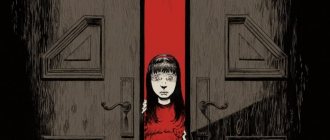Features of the pathology
Every person is familiar with the state of fear. However, if this feeling occurs frequently and interferes with leading a normal lifestyle, experts speak of a mental disorder. One of these pathologies is the fear of silence. This fear is called silensophobia. It lies in the inability to normal perceive the absence of sounds. People refuse to be in a quiet place. They strive to constantly receive information from the outside world. Audiobooks, radio, telephone conversations, and TV are used for this. With a phobia of silence, the absence of sound stimuli provokes discomfort. Indeed, in this situation, a person is left alone with his emotions. In severe cases, even performing a written test and being in the library causes discomfort.
Symptoms
Excessive noise can be debilitating and cause headaches. Staying in silence from time to time is useful, but not for people with iremophobia. A person develops a panic attack, which is characterized by the following symptoms:
- Shiver
- Dry mouth and sweaty palms
- Inability to speak
- Feeling disconnected from reality and having thoughts about death
- Numbness or, conversely, the desire to hide, run away
- Rapid heartbeat, nausea, gastrointestinal disorders.
Sometimes a person suffering from Iremophobia may feel fear in a group of people, when those around them stop talking or there is a lull in the conversation. Spending time in the library, taking a written exam, or even sleeping alone is a scary experience for those who are afraid of silence.
Reasons for the development of the disorder
Technical devices are constantly present in the life of a modern individual. Background sounds fill every second of human existence. Persons with a fear of silence cannot remain calm in a lonely hut in the middle of the forest or in protected areas.
This situation makes them uncomfortable. Today many people face a similar problem. The question of what the phobia is called - fear of silence - and why it occurs is quite relevant. Experts say that the phenomenon is associated with negative or dangerous events.
The most common causes of the disorder are:
- Severe fear in childhood. Many caring mothers and fathers try to protect their sleeping baby as much as possible from sound stimuli. They make double glazing, install soft coverings on the floor, turn off the radio. In the absence of noise, even the dropping of a pencil or the creaking of a door can cause a feeling of fear in a child.
- Using isolation from sound stimuli as punishment. The fear of silence develops in children who were locked in basements, pantries, closets, and dark rooms.
- Associations. They are often associated with reading books or watching horror films in which, after a long absence of sound stimuli, frightening events happen to the characters.
- Personal problems. Lack of self-confidence and inability to realize aspirations leads to the fear of being left alone. In this situation, a person tries to fill the void and cope with the flow of negative thoughts. To do this, he turns on the TV or music, talks on the phone.
Fear of silence
Lent ends, and the understanding and awareness of the gifts that it gives to the Orthodox Christian becomes ever clearer. Of course, as in any other time of abstinence established by the Church (whether long or short-day fasts), on Holy Pentecost we are called to get rid of passions and prepare for a joyful meeting with Christ. And to the best of our ability, we try, with God’s help, to succeed in this endeavor. But even starting from the first week of Lent and ending with the service of Holy Saturday, we, listening to the chants and readings heard in the Church, learn to remain silent.
Modern man has set himself to be the measure of all things. "I know what I am saying! I said so! Better listen to me!” - with such and similar phrases we are used to proving that we are exceptionally right. We, who have lost the connecting thread of history, who have overthrown the “old and dilapidated” ideals, who strive to put everything and everyone into our service, are not accustomed to being silent! The irrepressible “ego” requires irrepressible attention to itself, which cannot be achieved through silence. And that’s why we strive at every step to express our opinion on all issues, to tell the “truth” about everything we know, to inform everyone about our successes and the defeats of others!
We are not accustomed to cherishing and reverently cultivating thoughts and words in our heads and hearts - on the contrary, we strive to uproot the early “shoots” that have just appeared and demonstrate them to everyone. Modern man has a lot of words, a lot of sounds, a lot of unnecessary movements, but out of this whole “mass of much,” a very insignificant part turns out to be useful. Much ado about nothing!
Noise. We are used to it. The noise of the streets, the noise of human bustle, the noise of music in headphones, the noise of the TV at home. We are unaccustomed to silence! We have unlearned the value of silence and peace! Leave modern man alone in a field far from civilization, without any gadget that generates sound... Silensophobia (or iremophobia) is the fear of silence. This is a diagnosis that can now be made to literally every city resident. But why are we afraid of her? I dare to suggest that because we are not in it, or rather, in it we “sound” not as we are used to, but for real.
It is in absolute silence that the creak of our soul can be heard, sagging like an old cart under the weight of passions and sins. In the silence we can hear the quiet but incredibly loud voice of our conscience denouncing us! In the silence we understand that all our loud, truthful and sincere words are sometimes nothing more than just a stupid shake of the air.
Our world sometimes reminds me of a hive full of buzzing drones, among which humble bees are barely visible, working in concentrated silence. And if the drones sting each other in vain and buzz without ceasing, then the individual bees next to them, not paying attention to their loud “Z-Z-Z-Z”, work all day long in silence, only showing by their example that another way of being.
I remember the beginning of Lent: the first week, the first long services, against the backdrop of the buzzing world around us - quiet prayer in the temple. There are rare chants, and almost the entire service is spent in silence and reading. It was then, in the service, that the understanding of the absurdity of the noise comes. “God is not in the stormy wind,” as in Elijah, but, on the contrary, “the voice of the cold is thin, and there is the Lord” (1 Kings 19. 11-12).
- Be silent, listen and pray in this blessed silence, man! - the Church offers us.
— Silence? Like this? Why be silent about anything at all? - our arrogant mind is ready for rebellion.
- Be silent to hear the voice of God! Be silent to hear your soul! Be silent, because all your words are just meaningless buzzing! Be silent in order to understand the value and beauty of every word and through this get closer to the only important Word, Which everything began to be! (see John 1.3) - the Church addresses us through the readings and hymns of the Great Pentecost.
Here it is - terrible SILENCE!!! Why scary? Because it’s unusual, because you’re alone with God, and also hearing the unbearable howl and hubbub of passions tormenting your soul! Scream? Yell? There is no need, and it is pointless! Because scream not at someone else, but at your own laziness, pride and irresponsibility! And scream only about exclusively YOUR own irresponsibility, carelessness, connivance. Silence and quiet prayer - salvation from this “screaming hell” that has settled inside us is unclear when and how.
And then gradually comes the joy of silence, the joy of silence, the joy of Holy Saturday...
“Let all human flesh remain silent, and let it stand with fear and trembling, and let nothing earthly think within itself,” we hear during the liturgy of Holy Saturday. And now we are silent no longer because of some slavish fear, not because we “have to” - we are silent because we understand the preciousness of what is happening! “The jewel of silence” is a category that is far from modern man and at the same time so vitally necessary for him. In the silence of the temple, the miraculous Annunciation takes place, in the silence of the Bethlehem night the Savior is born, in the silence of the desert the devil tempts Christ, in the silence of Gethsemane the One who “redeemed us from the legal oath” prays “until he sweats blood”, in the silence the myrrh-bearing women rush to the tomb of their Teacher...
The very joy of Easter of Christ is the triumph of the Humble, Quiet and Silent over the screaming, yelling and growling hell.
Our world was created in silence.
Silence is the highest form of prayer and standing before God. When He is near, no words, loud phrases, or bright slogans are needed. Lent, among other things, returns to us the lost virtue of silence. Silence not in the sense of indifference and indulgence in sin, but in the sense of abstinence from idle talk and idleness, so characteristic of us. Yuri KISHCHUK https://www.prichody.ru/parishioners-on-the-feasts/21130/
Other Possible Causes
The prerequisites for the development of fear of silence are individual in nature. Sometimes negative emotions experienced in early childhood contribute to the emergence of a phobia in an adult. Some people, for example, say that the emergence of fear is associated with news of the death of a relative or other unpleasant events. Such situations are usually accompanied by silence. Therefore, a person experiences fear in the absence of sound stimuli. In addition, parents often scold their children for noisy behavior. Babies are naturally energetic and restless. They always try to attract attention to themselves. If a child does not shut up at the request of adults, he is punished.
Sensitive individuals may develop a fear of silence. In addition, the absence of sound stimuli is typical for uninhabited areas and forests. Superstitious people believe that evil spirits live there. They try to avoid being in such places.
Inner silence
And finally, let's move on to a more subtle and controversial topic: freeing your consciousness from your own thoughts. Indeed, even in a situation where the senses are completely isolated from the perception of stimuli (for example, by heavy-duty earplugs), the brain cannot rest, because it hears and perceives an endless stream of thoughts.
Unfortunately, for many people the task of “relaxing and not thinking about anything” is simply impossible. It is important for a person to learn to periodically turn on the “total silence” mode, both external and internal, in order to take care of the health of his psyche. However, the methods and ways to learn this practice are so interesting and varied that they deserve a separate article.
To be continued…
Tags: silence, impact on health
Reasons for the development of fear associated with pathologies
Fear of silence can be caused by the following ailments:
- Hormone imbalance.
- Disorders of the adrenal glands.
- Depression.
- Delirium.
- Schizophrenic disorder.
Sometimes, under the influence of hallucinations, a person cannot calmly be in a silent and unlit room. What is the name of the phobia of fear of darkness and silence?
Such phenomena are designated by the terms “nyctophobia” and “silensophobia”, and they are often associated and observed in the same person.
Causes of fear of the dark
From a scientific point of view, darkness is considered as the opposite state of light.
Psychologists identify a number of reasons for the occurrence of phobia :
- Genetic: fear of the dark can arise from a genetic predisposition that is inherited. Several generations can form scary stories or images.
- Physiological: in the dark, a person cannot perceive visual images. This is due to the structure of the human eye. The result is a feeling of insecurity, uncertainty, and lack of ability to protect oneself.
- Past psychological trauma associated with childhood experiences when the child was left alone in a dark room.
- Developed imagination. From the age of three, a small person is able to give objects new shapes and endow them with new qualities. Imaginary dangers become real as darkness falls.
- Stressful conditions that force you to be in constant tension. Every minor detail is perceived as a danger. In the dark, the feeling of loneliness and uncertainty, fear for tomorrow, intensifies. A person cannot correctly assess the real situation and sees a threat in everyday life.
- The use of alcohol and drugs often leads imaginative people to feel an imaginary danger from the dark.
- Vitamin deficiency leads to an unstable mental state, which results in a fear of the dark. The nervous system can function normally and affect the emotional state if the balance of vitamins and minerals is maintained in the body.
- Fear of death can provoke nyctophobia. It is death that most people associate with darkness, gloom, cold, and the black color of mourning clothing.
Manifestations of phobia at the physiological level
The feeling of fear provokes not only mental disorders, but also disorders of the functioning of various organs and systems. The absence of sound stimuli causes discomfort. A panic attack leads to the following symptoms:
- Headache.
- Muscle tension.
- Paleness of the skin.
- Feeling overwhelmed.
- Dizziness.
- Profuse sweating.
- Feeling chilly.
- Acceleration of heart rate.
- Feeling of nausea, dry mouth.
- Trembling of limbs.
- Feeling of muscle stiffness.
- Feeling of lack of air.
- Discomfort in the gastrointestinal tract.
How to determine pathology?
Many people who suffer from a fear of silence experience symptoms for several months. Even if there is no reason for negative emotions, a person feels discomfort. In addition, pathology often manifests itself in the most ordinary situations. Symptoms of fear intensify, at first the fear causes only a slight feeling of anxiety, and then leads to the development of panic attacks. A person’s quality of life deteriorates, and their well-being is also impaired. The need to listen to music or watch TV before bed deprives him of a full night's rest.
If a person notices such signs in himself, he should consult a specialist.
How to overcome
A state of internal melancholy that does not go away for a long time definitely needs correction. The sooner a person begins to act, the better for him. This phobia has its own distinctive characteristics. They need to be taken into account so that the process of getting rid of fear is as effective as possible.
Right to make mistakes
First of all, you should realize that every person can show their weakness, and there is nothing shameful in this. The right to be imperfect is given by nature. The more a person strains to demonstrate his strength and power to others, the more energy he spends fighting himself. All you need to do is relax and accept your inner state.
Having realized his own right to make mistakes, a person will be able to overcome any difficulties and overcome significant obstacles. Of course, you cannot leave this condition of yours without due attention. But it is very important not to focus on what is happening. The more effort spent on struggle, the less chance there is of finding oneself.
Rationalization
Any fears need to be carefully analyzed, then they will begin to pass. It’s better to try to sort everything out and explain to yourself why you are afraid of silence. If a panic attack takes you by surprise, you need to take a few deep breaths and try to calm down. Rationalization of any event reduces the degree of fear. As soon as we begin to think actively, something switches in our heads. The existing problem no longer seems so global and serious. It is important to analyze in time and identify what is really happening.
Conditions for silence
Many people absolutely cannot be alone with themselves, because various disappointing thoughts immediately begin to fill their heads. It is necessary to create appropriate conditions for silence in order to eventually stop being afraid of it. This is why some people constantly fall asleep with headphones in their ears. Continuous listening to music and various lectures on self-development gives them a temporary feeling of belonging to the world. If a person is suddenly placed in an isolated space, he begins to suffer. Stop constantly looking for some source of background noise. If you don't watch TV, there's no reason for it to work in your bedroom. Fearing loneliness, many people sit playing computer games for days on end. This is the wrong position. This will make the fear of silence even worse. You need to learn not to be afraid of loneliness. Only in this case can you be satisfied with life.
Thus, the fear of silence is associated with the individual’s inability to use his own internal resources. When overcoming iremophobia, you should turn to your inner state, trying to find peace and harmony.












